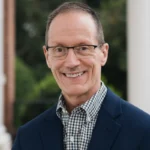I read about the hope many of us have that this current global crisis will turn our churches toward the Great Commission, and I genuinely hope that’s the case. I’m convinced, though, that won’t happen apart from an undeniable move of God in our midst. Here’s why:
1. Many Churches didn’t recognize they were inwardly focused before the threat ever happened. In fact, they might have even viewed themselves as evangelistic and outreach-oriented when they really weren’t. Their past tense poor self-evaluation isn’t likely to turn into future-tense Great Commission obedience.
2. Churches that were inwardly focused before the threat aren’t likely to change because of the threat. That’s especially the case when we’ve often needed to—rightly so—discontinue gathering for the immediate future. It’s harder, though not impossible, to be outwardly focused when you’re avoiding large numbers of people.
3. Most of us naturally default into self-protection, and this very threat has required us to focus on our own choices and activities to guard against exposure. That’s not a bad reason to be careful (in fact, it’s wise); it does show us again, though, that we always need the gospel to turn us outwardly. God has to continuously mold our hearts.
4. Some church leaders are making choices and decisions on the basis of political ideologies and personal preferences rather than on the basis of Christian love. If you read this blog at all, you know that I don’t jump into controversial discussions—and that’s not my point here. It’s simply to encourage us to think about others around us, to, when we consider meeting.
5. The right choices we’re making will probably grow old at some point if this threat continues for months. Frustration and weariness will likely set in. Economic worries may grow—which might result in even more self-centered workaholism once the crisis is over. None of these responses typically turns our attention away from ourselves toward others who need Jesus.
6. The very questions we’re being forced to consider are internal questions. Think about it—When will we meet again? How will we keep fringe members involved? What will be the budget ramifications of this crisis? Will our church survive? These are honest, necessary questions, but they don’t make it easier to be outwardly focused.
How should we respond?
So, what do we do? Here are a few simple suggestions:
Begin praying now, and then pray regularly, that God will use this situation to turn your church outwardly.
Be open to using virtual means to connect with unchurched people. Consider ways to reach out to others rather than wait for them to come to your website.
Begin even now planning how to return to your gatherings and your building in such a way that unchurched folks aren’t worried about the spread of viruses. Be intentional. Be safe. Be proactive. Be ready for when the church doors are open again.
My wife Pam and I continue to pray for all.




No comments have been added.